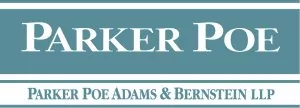The conflict minerals saga continues.
Background
In April 2014, the Court of Appeals for the D.C. Circuit in National Association of Manufacturers v. SEC held that the conflict minerals rule's requirement that companies state that their products have not been found to be "DRC conflict free" violated the First Amendment. Subsequently, the SEC staff released guidance relieving issuers of the obligation to put those labels in their reports. The case was subsequently remanded to the district court for further consideration, and on August 18, 2015, the Court of Appeals reaffirmed its prior decision.
In response to these developments, Acting SEC Chairman Michael S. Piwowar issued a statement in January 2017 declaring that he had "directed the staff to reconsider whether the 2014 guidance on the conflict minerals rule is still appropriate and whether any additional relief is appropriate." (See this Doug's Note.)
Last week, the D.C. Circuit Court entered final judgment in the case, which upheld its prior rulings, and remanded it to the SEC for appropriate action.
This past Friday, the SEC issued a statement noting that the D.C. Circuit's remand to the SEC has "presented significant issues for the Commission to address" and that several comments were received in response to Acting Chairman Piwowar's January request. Therefore, "in light of the uncertainty regarding how the Commission will resolve those issues," the Division of Corporation Finance will not recommend enforcement action if companies "only file disclosure under the provisions of paragraphs (a) and (b) of Item 1.01 of Form SD," which conspicuously excludes the need to comply with paragraph (c).
What does this mean?
Companies that use conflict minerals that are necessary to the functionality or production of products manufactured (or contracted to be manufactured) still must comply with Item 1.01(a), which requires that they:
- conduct a good faith reasonable country of origin inquiry (RCOI), and
- file a Form SD with the SEC not later than May 31st.
Companies that conclude that their conflict minerals do not come from a covered country (or come from recycled or scrap materials) still must comply with the Item 1.01(b) requirement to disclose that conclusion on Form SD and on its website.
Paragraph (c) of Item 1.01, on the other hand, relates to the requirement to conduct due diligence on the source and chain of custody of conflict minerals and the need for a related independent private sector audit. If a company's RCOI gives it reason to believe that its conflict minerals may have originated in a covered country (and are not from recycled or scrap materials), then it must conduct due diligence on the chain of custody and describe those efforts in a report attached to Form SD.
By eliminating the need to comply with Item 1.01(c), the SEC is saying that companies with conflict minerals do not have to:
- trace the smelters or refiners used by suppliers,
- provide the related chain of custody disclosures, or
- have such disclosures audited by a third party.
What should you do?
The Form SD filing deadline is only seven weeks away, and most companies are well into their annual chain of custody diligence and related disclosure drafting. Because most of the work is already done, the question becomes whether to scale back or eliminate processes and disclosures in light of these developments.
Before rushing to do so, remember that many company stakeholders, including customers, consumer groups and research firms, employees, non-governmental organizations and socially responsible investors, will continue to scrutinize conflict minerals compliance and disclosure when evaluating a company's overall corporate social responsibility performance. Therefore, companies should consider their key stakeholders and what message they are trying to send.
Furthermore, the SEC's statements address only the absence of that agency's intention to bring enforcement actions. They do not control whether a court considering a private action might otherwise conclude that failure to comply with Item 1.01(c) violates applicable law.
Stay tuned. No doubt there's more to come.
This Client Alert is intended to inform readers of recent developments in the field of corporate law. It should not be considered as providing conclusive answers to specific legal problems.

